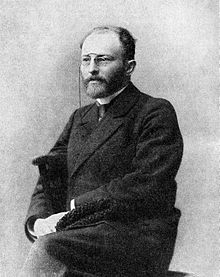
Andrei Platonovich Platonov was a Soviet Russian novelist, short story writer, philosopher, playwright, and poet. Although Platonov regarded himself as a communist, his principal works remained unpublished in his lifetime because of their skeptical attitude toward collectivization of agriculture (1929–1940) and other Stalinist policies, as well as for their experimental, avant-garde form infused with existentialism which was not in line with the dominant socialist realism doctrine. His famous works include the novels Chevengur (1928) and The Foundation Pit (1930).
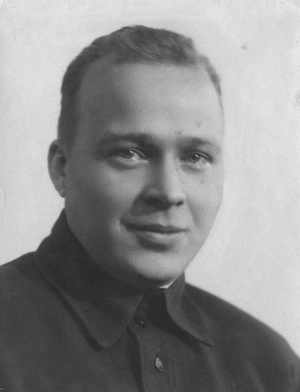
Arkady PetrovichGaidar was a Russian Soviet writer, whose stories were very popular among Soviet children, and a Red Army commander.

Samuil Yakovlevich Marshak was a Soviet writer of Belarusian Jewish origin, translator and poet who wrote for both children and adults. He translated the sonnets and some other of the works of William Shakespeare, English poetry, and poetry from other languages. Maxim Gorky proclaimed Marshak to be "the founder of Russia's (Soviet) children's literature".
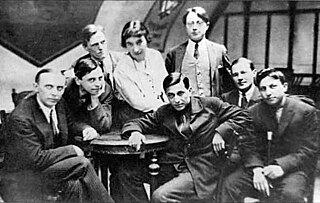
Mikhail Leonidovich Slonimsky was a Soviet writer, member of the Serapion Brothers group, and a Memoirist.

Aleksey Mikhailovich Remizov was a Russian modernist writer whose creative imagination veered to the fantastic and bizarre. Apart from literary works, Remizov was an expert calligrapher who sought to revive this visual art in Russia.
Sergei Mikhailovich Golitsyn was a Russian writer.

Gleb Ivanovich Uspensky was a Russian writer and a prominent figure of the Narodnik movement.

Vikenty Vikentyevich Pashukanis was a secretary of the publishing house "Musaget" and a founder of "Pashukanis' Publishing"; after the Russian Revolution (1917) he was an organizer of museums.
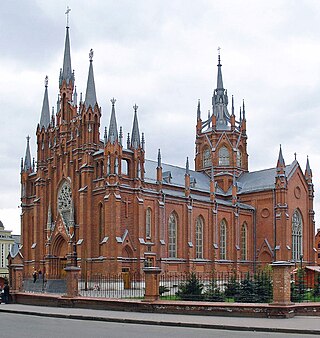
There are currently more than 47,000 ethnic Poles living in the Russian Federation. This includes native Poles as well as those forcibly deported during and after World War II. When including all of the countries of the former Soviet Union, the total number of Poles is estimated at up to 3 million.

Nikolai Georgievich Mikhailovsky was a writer and essayist from the Russian Empire. He was also a locating engineer and railroad constructor. As a writer, he published under the pseudonym N. Garin, and since his death has been commonly referred to as the hyphenated Garin-Mikhailovsky.

Irakly Luarsabovich Andronikov was a Soviet and Russian literature historian, philologist, spoken word artist, and media personality.

Stepan Gavrilovich Skitalets was a Russian and Soviet poet, writer of fiction and folk musician. The name Skitalets means "wanderer" in Russian.

Nikolai Elpidiforovich Karonin-Petropavlovsky, was a Russian Empire writer, essayist, and political activist. His real name was Nikolai Petropavlovsky; his pen name was S. Karonin. A number of later Russian sources refer to him as Nikolay Karonin-Petropavlovsky.

Sergey Terentyevich Semyonov was a Russian writer and a member of the Moscow literary group Sreda.

Valentina Iovovna Dmitryeva was a Russian writer, teacher, medical doctor and revolutionary.

Alexander Sergeyevich Neverov, was a Russian/Soviet writer and teacher. Neverov was his pseudonym; his real last name was Skobelev (Ско́белев).
Alexander Stepanovich Yakovlev was a Russian/Soviet writer.

Znanie was a publishing company based in St. Petersburg, Russia founded by Konstantin Pyatnitsky and other members of the Committee for Literacy. It operated from 1898 to 1913.
Nadezhda Vadimovna Kozhevnikova is a Russian writer and journalist, and the daughter of Soviet writer Vadim Kozhevnikov.
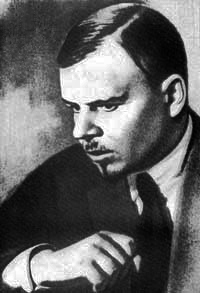
Panteleimon Sergeyevich Romanov was a Russian/Soviet writer.
